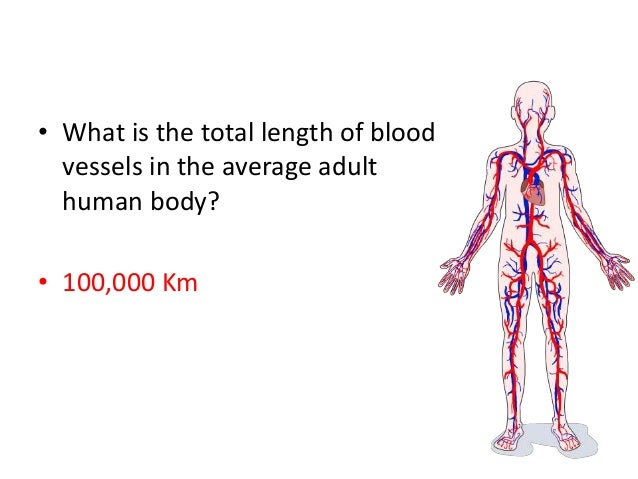There are more than 100 000 miles of blood vessels in your body

There are more than 100,000 miles of blood vessels in your body.

When it comes to the human body, there are countless fascinating facts to uncover. One such astonishing fact is that there are more than 100,000 miles of blood vessels in your body. Yes, you read that correctly - more than 100,000 miles! That’s enough to encircle the Earth four times!
Blood vessels play a crucial role in our circulatory system, which is responsible for delivering oxygen, nutrients, and hormones to different parts of the body. They are like a vast network of highways, delivering essential supplies to every cell and tissue, ensuring our bodies function optimally.
The circulatory system is made up of three types of blood vessels: arteries, veins, and capillaries. Each type has its own unique structure and function. Arteries carry oxygenated blood away from the heart to other parts of the body, while veins carry deoxygenated blood back to the heart. Capillaries, on the other hand, are tiny, thin-walled vessels connecting arteries and veins. These tiny vessels allow for the exchange of oxygen, carbon dioxide, and other vital substances between the blood and surrounding tissues.
The sheer length and complexity of our blood vessel network can make it challenging to comprehend. To put it into perspective, imagine a highway system within your body that connects every organ, tissue, and cell. This intricate web ensures that no part of your body is left deprived of its vital needs.

Unsurprisingly, the health of our blood vessels is paramount. Maintaining the integrity and functionality of this extensive network is vital for overall well-being. Poor blood vessel health can lead to various health conditions, including heart disease, stroke, and high blood pressure.
Adopting a healthy lifestyle can significantly contribute to the well-being of your blood vessels. Regular exercise, a balanced diet, and not smoking are all beneficial for maintaining vascular health. These lifestyle choices support healthy blood flow, prevent the accumulation of plaque within arteries, and reduce the risk of developing cardiovascular diseases.
In conclusion, the fact that there are more than 100,000 miles of blood vessels in your body is awe-inspiring. These vessels are essential for sustaining life, providing the necessary oxygen and nutrients to every part of the body. Understanding the intricacies of our circulatory system can encourage us to prioritize our vascular health and make informed decisions to ensure a healthy and functional body.
Source: Franklin Institute
Tags
Share
Related Posts
Quick Links
Legal Stuff

